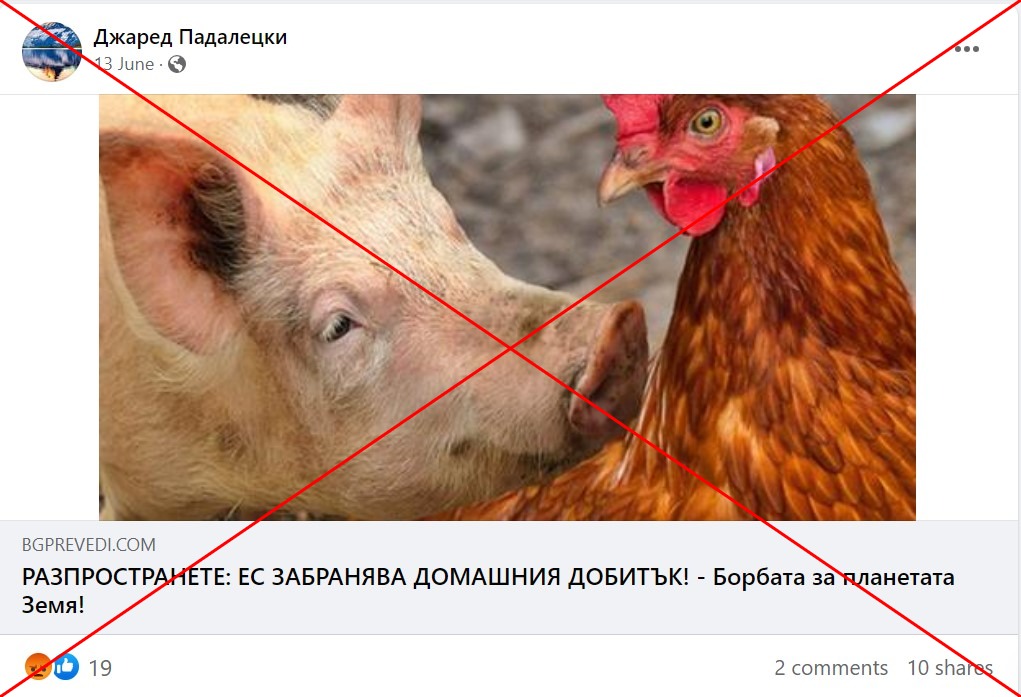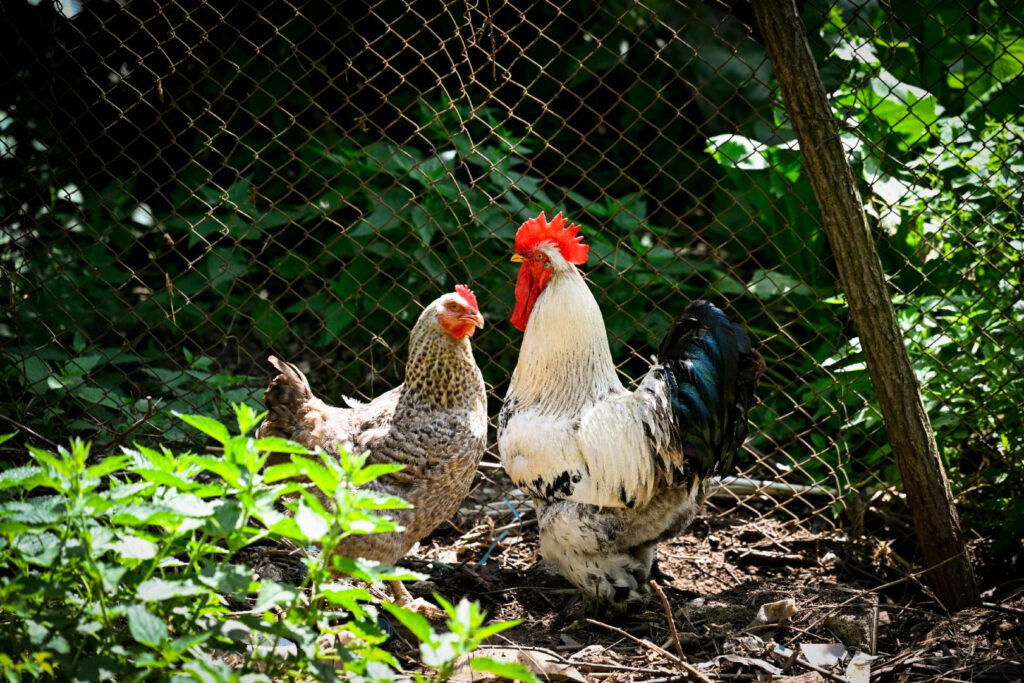“RESISTANCE: EU BANS DOMESTIC CATTLE! IN BULGARIA, SQUADS ARE MARCHING ON HOUSES AND YARDS TO REMOVE LIVESTOCK!”, the headline of a blog article reads.
The article also claims that the ban would enter into force from July 1, 2023. It alleges that on this date special inspections will start and those who still have pigs, cows, or poultry will be fined and the animals confiscated. The post also claims that as part of the supposed new legislation, the EU has forbidden the production of homemade dairy products and eggs.
According to the social media analysis tool CrowdTangle, the post has been shared over 2,400 times on Facebook since June 10, 2023, including here.

However, the claims in the post are not true.
No EU ban
The EU has a common agriculture policy (CAP) for all countries in the bloc, and the sector is considered one of the most integrated in the Union.
“Let us be very clear here: the European Commission has not banned domestic cattle or homemade dairy products or eggs, and has no intention to do so”, a Commission spokesperson told AFP in an email received on July 6, 2023.
“All CAP Strategic Plans apply from 2023 to 2027, so it is clear that the Commission will not ban cattle or dairy products and eggs in any possible way,” the spokesperson explained to AFP.
The EC spokesperson pointed out that according to Bulgaria’s CAP Strategic plan (archived here) the country is not considering cutting domestic cattle numbers and has actually decided to give livestock breeders income support.
According to another measure in Bulgaria’s CAP Strategic Plan, livestock farmers who voluntarily reduce livestock on their land and suffer from economic difficulties as a result will be compensated “for their possible loss of income with 170€ per hectare,” the EC spokesperson said, adding that “any reduction of animals or production is completely voluntary” and that “no such request is being made by the European Commission”.
Asked whether there were any plans to ban domestic livestock, pigs and cattle, the press centre of the Bulgarian Agriculture Ministry told AFP in an email received on July 6, 2023 that “these statements are not true”.
In Bulgaria, a 2006 ordinance sets out the veterinary health requirements for livestock breeding. The ordinance was amended at the end of June 2023 but the amended text in no way prohibits the keeping of domestic animals. The official aim of the amendments is to ensure animal welfare requirements are adhered to, for example by setting “minimum housing and feeding levels” for ruminants, i.e. animals such as cattle and sheep.

In an email to AFP on July 26, 2023, the press centre for the Bulgarian Food Safety Agency (BFSA) said there was “no ban on keeping livestock” domestically. It added that contrary to the claims in the false article, “no checks on compliance” with the ban are taking place since it does not exist.
On July 22, 2023, an AFP reporter confirmed that domestic animals like poultry can be seen in people’s yards in a small town near Sofia, weeks after the supposed ban was meant to come into effect.
EU law not relevant for home-produced food
The post also claims that the EU has forbidden domestic production of dairy products, cheese or eggs.
However, food production for domestic use is not in the scope of EU regulation. “Preamble 9 of Regulation (EC) No 852/2004 states: ‘Community rules should apply neither to primary production for personal domestic use nor to the domestic preparation, handling or storage of food for personal domestic consumption”, Gergana Kabaivanova told AFP in a message on July 25, 2023. Kabaivanova is the founder of the Localfood.bg/Pendara Foundation, which promotes the consumption of sustainably grown local food.
The control of food production is regulated by the Bulgarian Agency for food Safety, under the umbrella of the Bulgarian agriculture ministry. In the same email to AFP dated July 6 the press centre of the ministry denied the claim that the domestic production of dairy products and eggs is forbidden.
Росен Босев
All articles (in Bulgarian)
AFP България

- Home
- About AFP
- How we work
- Editorial & Ethical standards
- Fact-Checking Stylebook
- Meet the team
- Training
- Subscribe
- Contact
- Corrections
Copyright © AFP 2017-2023. All rights reserved. Users can access and consult this website and use the share features available for personal, private, and non-commercial purposes. Any other use, in particular any reproduction, communication to the public or distribution of the content of this website, in whole or in part, for any other purpose and/or by any other means, without a specific licence agreement signed with AFP, is strictly prohibited. The subject matter depicted or included via links within the Fact Checking content is provided to the extent necessary for correct understanding of the verification of the information concerned. AFP has not obtained any rights from the authors or copyright owners of this third party content and shall incur no liability in this regard. AFP and its logo are registered trademarks.
